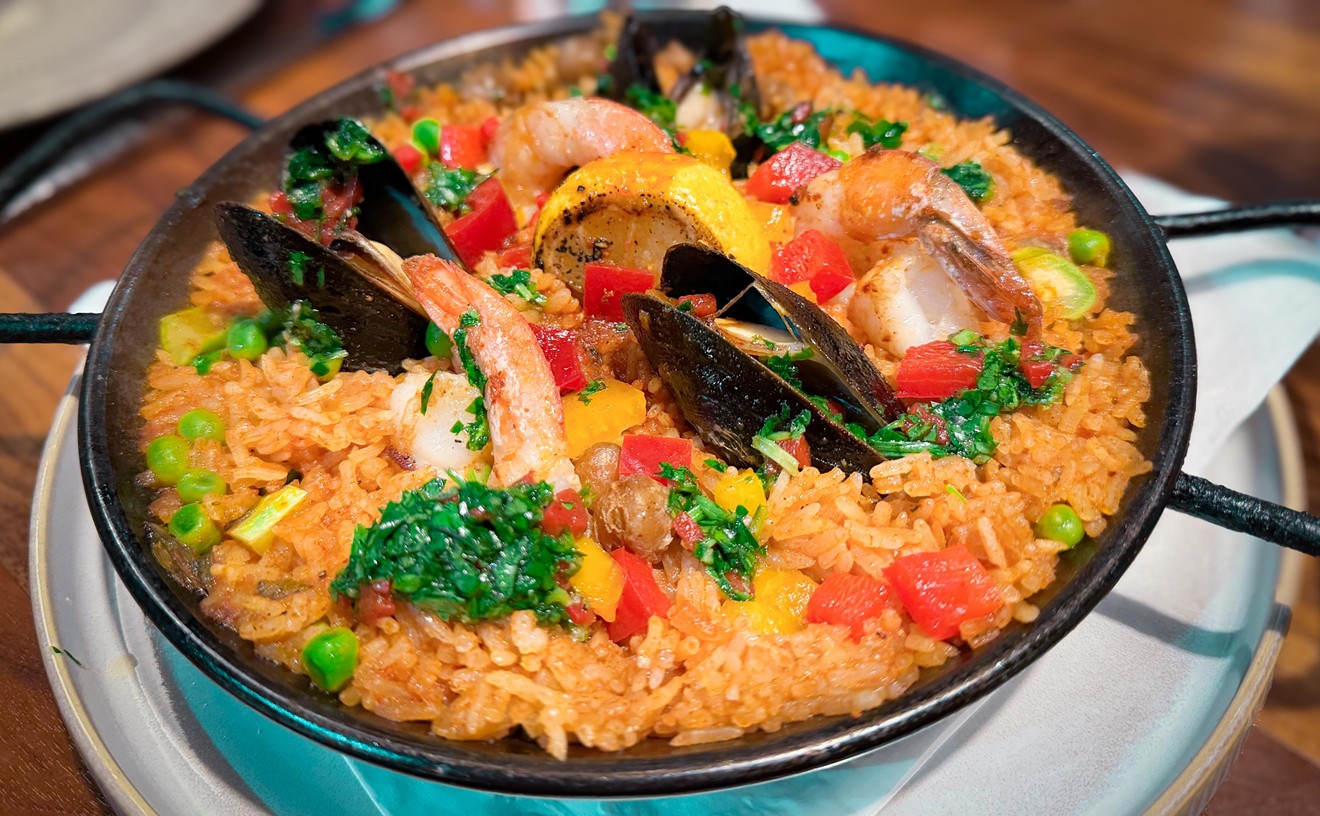Perhaps this explains how officers learn quickly to misstate the obvious. After getting his ass whipped in Russia, the great Napoleon rallied his men by urging a sudden and rapid counterattack--on Paris. Advancing, his apologists later explained, in the other direction. Our favorite juxtapositions, however, come from the frustrated rank and file, who define managerial errors as "situation normal, all fucked up" and the rush to stand in line as "hurry up and wait."
SNAFU, by the way, also applies to any athletic organization run by Jerry Jones, at least up until now. Standing in line...well, that's our topic for this week.
Most nights, packs of eager trend-followers line up outside Nikita, waiting to crowd into the already crowded basement lounge. Comely women engage well-dressed men in and around the bar while others wait up to an hour--sometimes more--just to gain entrance.
"Everyone from New York, from L.A., that we talked to said it was the lounge that was happening," says David Pedack, Nikita's bar manager. That translates as low-slung couches and comfortably hip décor. The West Village nightspot is well appointed with both. And, Pedack adds, "We have the location, the concept and the staff to make Nikita an institution."
Ah, but is that possible? Dallas bar-hoppers are a notoriously capricious lot. And this week's Burning Question--Who are the fickle 500?--alludes to the contemptuous figure used to describe the swarm of patrons who descend upon an establishment for a time then abandon the place when another hot spot beckons. Before Nikita, and in no particular order, the fickle 500 populated Sense, Umlaut, Bali Bar, Euphoria, Minc, Paris Vendome, etc.
"There's no loyalty," observes Jarrett Cook, bartender at Euphoria. "They follow in herds. I guess they get bored fast."
Some places rebound after the in-crowd departs; Paris Vendome never really dropped off, for example, and Bali Bar is beginning to recoup its late-night audience. The art of longevity, in this market, depends on the ability of a bar to build a steady flow of regulars. Yet for some reason, most bars revel in their temporary popularity.
"Why does everybody cater to them if they just leave anyway?" ponders Bob Daly of Paris Vendome. "If you treat everybody the same, they don't think they're being bypassed for the hot crowd, and they remember that."
"Regulars are bread and butter," agrees Rus Miller, bartender at Jeroboam. "But for a short span," he adds of the trend-followers, "it can be big money."
The lines outside Nikita represent dollar signs. That's why the pseudo-Soviet lounge attracted stellar bartenders such as Adam Salazar and Chris Michael from such venues as Sense, Bali Bar, Patrizio and Samba Room. "What I want is a place where they're having so much fun and making so much money that they still want to work here, even if they won the lottery," Pedack says of his staff. It's not that Pedack set out to draw a fickle crowd. Nikita just offers everything of the moment in Dallas today: a lounge atmosphere, a subterranean setting and vodka. It pours more than 60 brands, which Pedack defines as a "prestigious call," but which causes skeptics like Scooter Melton at Thomas Avenue Beverage Company to scoff, "That's like having 60 different hamburgers."
None of this, however, addresses the Burning Question. "Who are the fickle 500?" asks Matthew, Bali Bar bartender and poet laureate of Dallas nightlife. "The core of a place is not the architecture, is not the surface décor," he says. Rather, people seek noise, action and other people. Therefore, a busy valet stand and a crowd at the bar encourage others to stop by for a bit of jostling, elbow-banging, waiting-impatiently-for-a-drink kind of fun.
"It's self-perpetuating," Miller adds. "That's where the fickleness comes in. It's not intentional."
If not intentional, then why the derogatory epithet? "When people speak of the fickle 500, they're expecting a club to transcend that," Matthew explains. He draws a comparison to the feeling most of us get when someone pulls alongside in a more desirable car. We assume the other driver considers himself superior--unless he shouts "nice Festiva," of course. There's nothing, at that moment, we can do to take that person down a notch, and we despise him for it. That feeling--call it envy or spite or journalism--created the fickle 500.
None of us, you see, labels ourselves as fickle or trendy. No, we zip up Lucky Brand jeans because we appreciate comfort and quality. Or, as the poet laureate points out, "Most people couldn't distinguish Prada from Jil Sander on a rack, but they know they hate people who wear Prada." Indeed, all of us hate the shallow "pretty people," and we bad-mouth them even as we schedule implant surgery or lease a new Beemer.
"The fickle 500," Matthew concludes, "is you and me."










